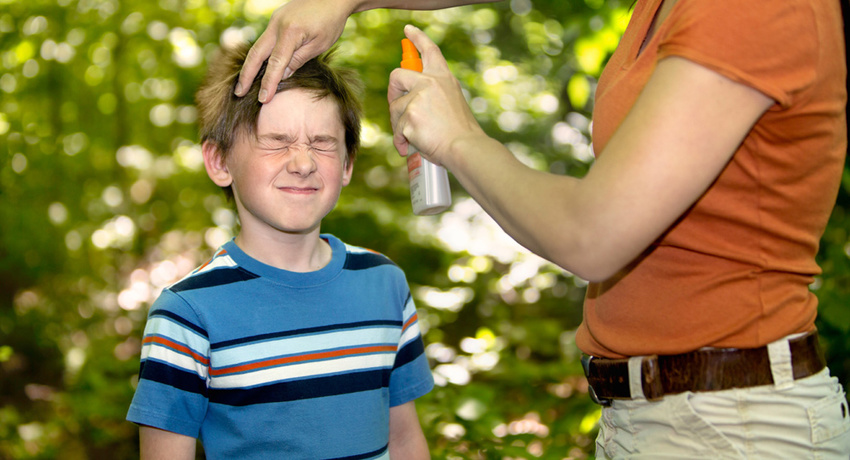Mosquito, tick and chigger bites are itchy. They also can cause serious illnesses like Lyme disease and West Nile virus.
Repellents that contain ingredients like DEET, picaridin and oil of lemon eucalyptus can help keep biting insects away from children. The American Academy of Pediatrics (AAP) recommends using a tool at https://bit.ly/422MTkV to find products registered with the Environmental Protection Agency.
Parents also can follow these tips from the AAP to make sure they use insect repellents safely:
- Choose sticks, lotions or un-pressurized sprays.
- Follow all directions and precautions on the label.
- Apply insect repellent on young children and watch older children to make sure they use repellents correctly.
- Use just enough repellent to cover your child’s clothing and exposed skin.
- Do not put repellent on children’s hands because they might put their hands in their mouth and eyes.
- Spray a little repellent on your hands and then rub it on your child’s face so it doesn’t get in the eyes and mouth.
- Spray repellent in open areas so children don’t breathe it in.
- Do not spray on cuts, wounds or irritated skin.
- Do not use products that have both sunscreen and repellent in them. Sunscreen needs to be reapplied more often than insect repellent.
- Wash kids’ skin with soap and water to remove repellent when they come inside, and wash clothing before they wear it again.
- Keep repellents out of young children’s reach.
- If your baby is exposed to insects, put mosquito netting over carriers and strollers.
If your child has a reaction to an insect repellent, wash the skin with soap and water. Then call either your Doctor and or
Ontario Poison Centre Phone: (416) 813-5900.
(Source: AAP Newsletter w to use insect repellents safely around kidsJune 1, 2023, https://publications.aap.org/aapnews/news/24397?utm_source=MagnetMail)
How to use insect repellents safely around kids

